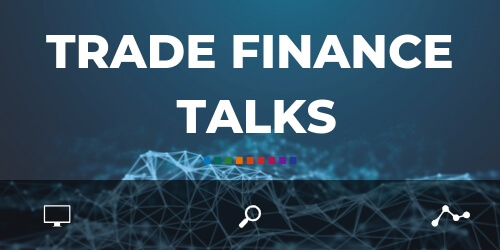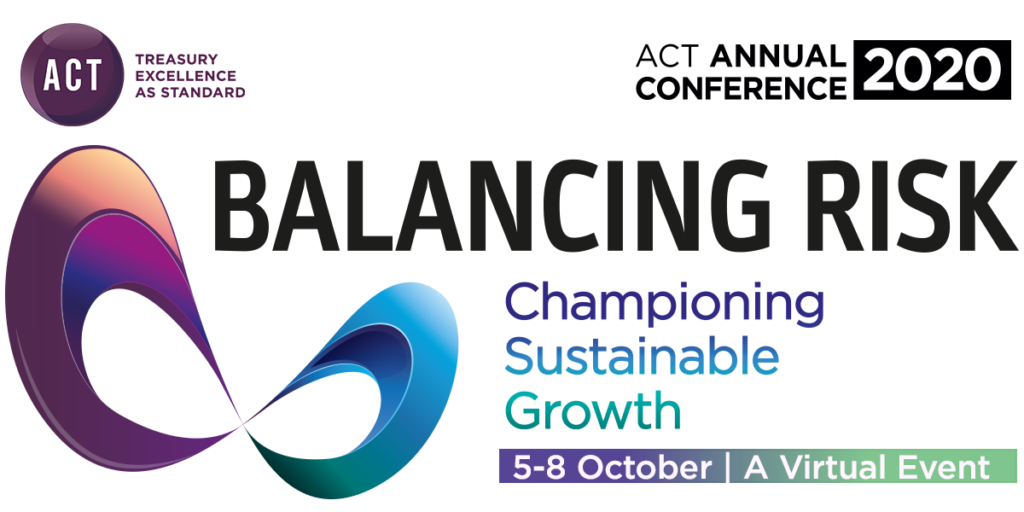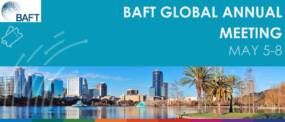Listen to this podcast on Spotify, Apple Podcasts, Podbean, Podtail, ListenNotes, TuneIn, PodChaser
Season 1, Episode 52
Host: Deepesh Patel (DP), Editor, Trade Finance Global
Featuring: Caroline Stockmann (CS), Chief Executive, Association of Corporate Treasurers

“Culture eats strategy for breakfast- which recognises the fact that strategies become extinct very quickly when faced with a pandemic, so it’s really important that the culture of a business or a treasury team, in this case, is one of agility and resilience.” – Caroline Stockmann
What then makes a good and effective leader?
TFG’s Deepesh Patel heard from Caroline Stockmann, Chief Executive, Association of Corporate Treasurers on lessons learned from the Covid-19 pandemic on building resilience in treasury.
Deepesh Patel (DP): Welcome Caroline to Trade Finance Talks!
So a 30-second elevator pitch from you, who are you, where are you from, and what do you do?
Caroline Stockmann (CS): I’m Caroline Stockmann, Chief Executive of the ACT, as you will have read. I’ve had a long career in finance, though also I’ve done a number of other things – including coaching others as a trained coach from my Unilever days, as well as teaching and playing the flute. I’ve worked in large blue chip corporates such as Unilever and Novartis, as well as some significant international not-for-profits like Save the Children International and the British Council, and I’ve always had a very international focus. Bringing these elements all together, I find that I can apply learnings from one area to another, and this is probably what has helped me most during these challenging times as well as during other periods of stress and business and personal disruption.

What is the treasury?
DP: What does the ACT do?
CS: The Association of Corporate Treasurers is the global membership body for corporate and other treasurers, and our mission is to embed the highest standards of professionalism and integrity in the treasury world and act as its leading advocate. In other words, to ensure treasurers are equipped with all the tools they need to be successful in their role, and also to ensure governments and regulators understand the view of what we like to call the ‘real’ economy, when making important decisions which will affect business. We provide qualifications from fundamentals in treasury up to masters-level, we have print and online publications and content, we run events around the globe where we bring the buy-side and sell-side together and learn from thought-leaders on all the current hot topics, as well as providing other support and continuing professional development for our members and other treasurers.
DP: What is treasury?
CS: Treasury involves a number of areas, in particular capital and liquidity as well as financial risk management. It provides therefore a vital link between the business and the external financial world. It’s a finance function that’s vital to the financial health and success of any business, which we can see quite clearly in the current COVID-19 crisis. Treasury influences a company’s financial strategy and policies, advising on where and how to invest, organising the funding of the company, managing it cash flows and managing the other financial risks the company faces such as foreign exchange. If we want to simplify it, it’s all about managing money.
Treasury – what’s the new normal?
DP: How has the role of treasurers changed since the outset of the COVID-19 pandemic, and where have things moved to?
CS: The role still has its core focus, of course, as highlighted in our 2020 Business of Treasury research, on capital management and liquidity, and financial risk. That won’t change. What has changed is the focus the rest of the business is giving to treasury matters. Cashflow forecasts have increased in frequency, as have conversations with CFO, CEO and Board. Treasurers have had to take actions they might never previously have needed to – like setting up new funding sources such as issuing bonds, or getting a facility in place or a loan – but they knew already how to do this as they had studied with the ACT and had a comprehensive treasury education, shall we say, as well as plenty of opportunities to ask for support from others if in doubt on any point. The key thing probably is the fact that they are now front and centre of their businesses, and this can be a real opportunity to build strong relationships with the key decision-makers in their organisations – which can only hold them in good stead for the future. And of course they are doing all of this mainly from home!
DP: Given the physical restrictions in terms of movement of people and goods, how have treasurers coped with different working norms?
CS: They have coped very well. I cannot think of one instance where a treasurer has said there were issues transitioning to working from home. They and their teams were prepared, and it worked seamlessly – sometimes more so than for their colleagues in other areas of the business, and we do know some of the banks had a few initial teething problems, – which were however quickly resolved. We are aware though of the huge strain put upon people – the combination of lockdown and the psychological effect of worry about the pandemic, with the pressures of work which increased significantly, means that mental wellbeing has been affected. Every person’s circumstance is different – whether they cannot get any peace and quiet at home, or they are alone and lonely, they have worries about other family members, or they just can’t separate work from home life and find that stressful; whatever the circumstance, we know everyone is experiencing additional stress at this time, and my concern is that it can creep up on you and you can become unwell before knowing it. So I think we need coping mechanisms and strategies for everyone, whether we think we need them or not. In this part of the world we are coming into shorter, darker days, which we know take a toll on people. I would encourage anyone and everyone to just think that through and ensure you are talking with others about how you can best deal with the situation in a world of at least partial lockdown.
World Bank’s Anshula Kant, on building sustainable, inclusive, and resilient socio-economic systems

Cash is king
DP: A key function of treasury is cash flow, not just in its own business, but to its suppliers. With global supply chains disrupted and suppliers facing challenging cashflow situations, how have some of the larger corporates helped their smaller suppliers?
CS: We know some have been flexible around payment terms, and some have helped with advice around trade financing solutions – for the former they have worried less about their working capital ratios, and more about how to keep their ‘ecosystem’ alive and kicking, so to speak. If your suppliers go under you’re going to have bigger problems than a slightly lower cash balance due to early payment – especially when you have access to cash facilities, which many of the smaller or mid-market corporates don’t have.
DP: Have governments and funders helped? How?
CS: Governments certainly have helped, and we have heard of various schemes around the world where they have for instance worked with the financial services community to inject cash into the economy via cash facilities or loans which they guarantee, at least in part. Clearly their focus is to ensure the economy remains as stable as possible, and that includes supporting workers by subsidising wages in one form or another. It’s very complex of course, and there are no easy solutions, as everything in the end does come at a cost, and by their very nature certain schemes only can help specific parts of the economy. Things continue to evolve as well, but the fact that many governments acted decisively at the outset is a really great sign.
Treasury and technology collaboration
DP: Where is the treasury function headed if we take a short to medium view? Has COVID accelerated the integration of new technology into these functions, and what can corporate treasurers do to future proof their businesses?
CS: There is definitely a trend of acceleration in the digital world, and we see greater use for example of blockchain and other technology. Treasurers, after a pause of a few months, are implementing treasury management systems in some cases, and simply the fact that everything has been happening remotely, from home, is both a reflection on the solid business continuity plans treasurers have had in place as well as a tribute to the advancements in technology over the last few years. Were we in this situation just five years ago, the world would be looking a very different place.
And future-proofing? Well, I’d come back to cashflow forecasting here, as a start point, and whilst a large part of accurate forecasting is a deep understanding of the business model and processes, combined with excellent communication skills, advances in technology are opening up new avenues – for instance in the level of sophistication of data. Whilst historical trends may not be of help in a period of unprecedented disruption, data which is comprehensive and immediate will be invaluable. Looking to retain the comprehensive business continuity plans which have held treasurers in good stead, as well as ensuring financial controls do not slip, and thereby allow cyber attacks to succeed, for instance, are other areas of future-proofing. And taking things from a different angle, adapting an agile mindset can be a great form of protection. They say ‘culture eats strategy for breakfast’, which recognises the fact that strategies become extinct very quickly when faced with a pandemic, so it’s really important that the culture of a business or a treasury team in this case is one of agility and resilience.
Paving the future of international trade and trade finance

Leadership & transparency – lessons learned
DP: Learning and development is critical during times like this – can you talk a bit more about this?
CS: Of course. Learning is something research tells us builds resilience. But many people have felt irritated, for example, at the beginning of the various lockdowns when they were told it was a great time to learn a language etc. Many of us just felt too exhausted, and could not get our minds in a place to study, and then felt bad about ourselves because we didn’t take up Russian or whatever. But there are many different forms of learning. Some people might want to take on an ACT qualification, whereas others may want to research wildflowers, or types of tree. Some may find benefit from googling random items, and others might try out a series of new recipes.
All of these things can be helpful to us, and the important thing is that we are stimulating a different part of our brain from usual, having a break from other stuff (including negative thoughts) and doing something that’s just for ourselves. We need to be kind to ourselves, and not by overindulging, say, on food or drink or binge-watching films – though a bit of that is not an issue. My point is we need to be thinking about things that are for us and our own development, and not come out of COVID-19 in what may be a few years’ time not having progressed in terms of our own personal development. At the ACT we equip people with the tools they need in their role, and we focus on making the study relevant. That includes offering learning outcomes which are around the ‘softer’ skills – without which we won’t progress to the same level. These skills can also help us better navigate life during a pandemic.

DP: What makes a good leader during times of extreme uncertainty, particularly in a time when teams are dispersed and there’s much less face to face.
CS: I believe in such times and circumstances a good leader is someone who is transparent, explicit, caring, decisive, a good listener, authentic and honest, creative, inquisitive and passionate about their organisation and their people. When there is great uncertainty you need to create as much certainty as is within your power to do. You need to make decisions relatively quickly, and be transparent about why you made those decisions – people need to understand the thought process. You need to be in very regular communication with your staff, and keep them informed, and be honest about your thoughts and feelings, as much as is possible – and I’d suggest that is more than most people think. You really need to listen hard to others’ views and ideas, and respond by taking action where you can, in a decisive way. This can help create a feeling that there is control, which people need, although you know yourself that we’re not really in control of what life throws at us – and COVID-19 is a great example of that. And finally I’d say you need to be courageous – courageous in facing problems that don’t have easy answers, courageous in taking decisions that might turn out not as well as you’d hoped, and courageous in opening yourself up so others can really see you, and therefore trust you.
ACT’s strategic insights
DP: And you have a ‘strategic insights’ podcast right, discussing some of these career development-related learnings and ideas?
CS: Yes. Every Friday during 2020 a short, 5-7 minute podcast comes out, accessible to all through our website, or you can find it on Spotify. The series takes different topics and insights that have struck me over the years, as a business leader and a coach. They range from talking about how to embrace the benefits of diverse thinking, to how to communicate more effectively, to how to make your mind believe what you need it to. My belief is you shouldn’t have to read 300 pages of a book to get one insight, and that if I can offer in five minutes two tangible things that could make a positive difference to someone’s life, then why not do it?
DP: What 3 pieces of advice would you give to a corporate treasurer right now, navigating the current landscape?
CS: Well, our treasurers know that liquidity is all-important, so managing cashflow and ensuring sufficient funding is key, and they know that they need to be in constant communication with their boards, and be thinking one step ahead all the time to ensure the sustainability of their organisation. So the pieces of advice I’ll give are the possibly less obvious ones, and maybe not what you are expecting from me, but they are hugely important, and are the ones which will make a difference to everything else you do. So:
- look after your health and whatever the pressures, make sure you eat nutritious food, drink lots of water and get enough sleep; you cannot operate on empty batteries, and when you get some proper rest things can be seen more clearly and you work more efficiently into the bargain
- don’t forget about your own development, whether it be study, reading, webinars, or networking with colleagues; it can also be just reflecting on what you have learnt over the past months, perhaps without really realising it: if you don’t move forwards yourself because your head is down all the time, focusing on ‘getting the job done’, you can be left at the end of it all exhausted and with nowhere to go. I believe in being absolutely loyal to your organisation, and doing your best for it – but also remembering that at a certain point it may no longer want or need you, and you need then to be in the right place for your next steps. And any form of learning builds resilience, so research tells us
- To build your resilience further there are a number of other things you can do, and I talk about them in my podcasts; one I’d like to draw out here is: giving. If you can help others, give of yourself, or give a gift or a donation – whatever it is that can work for you – that will help you. Volunteer for the ACT mentor scheme, keep an eye out for colleagues who have withdrawn somewhat and speak to them – the gift of conversation can be really important in these times. Surprise someone with the gift of a compliment – it doesn’t cost anything, but will give you a boost as well as them. The final resilience-builder I’ll mention today is around taking control of what we can take control of, if that makes sense? Our mind is very clever and the more you tell it something, the more it believes that thing. Once we realise this, we have the opportunity to influence ourselves more positively. We realise that it’s not what has just happened that makes us think or feel a certain way, but it’s how our mind has reacted to the event. A complex topic for today, and you can hear more about it in my podcast series – but as a final word from me: if you tell yourself repeatedly that the pandemic has cheated you of things and you are in a terrible situation, then you will believe that. If you tell yourself repeatedly however that you have done really well in transitioning to the current ‘normal’, and you have learnt some new things and you have found benefits from working in a virtual world (global relationships, closer to nature, reduced commuting time – whatever it happens to be), then you’ll feel much more positive. You have the control over that, and that’s a powerful thought.
 Australia
Australia Hong Kong
Hong Kong Japan
Japan Singapore
Singapore United Arab Emirates
United Arab Emirates United States
United States France
France Germany
Germany Ireland
Ireland Netherlands
Netherlands United Kingdom
United Kingdom












Comments are closed.